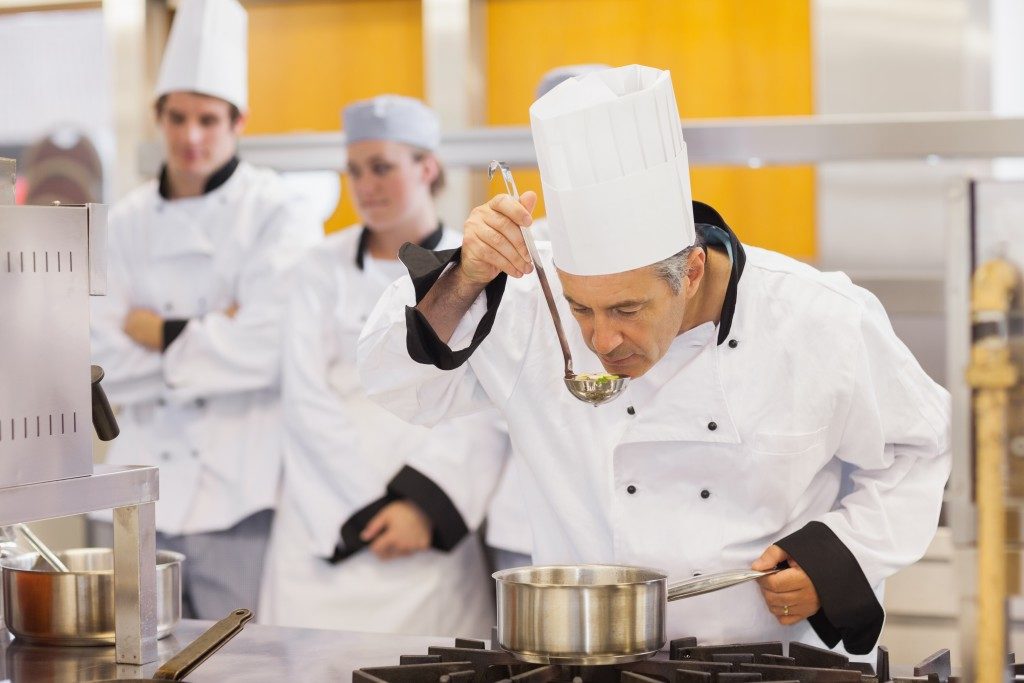Restaurant kitchens may be out of customers’ sight. But whatever happens there reflects on the plates served to them. Also, running an efficient kitchen restaurant translates to happier employees. They have satisfaction both with their work and their relationships with their colleagues. As a manager, what simple strategies can you use to have an ideal restaurant kitchen? One that will produce satisfied customers, happy employees, and delicious meals?
Set Standards and Maintain Them
For a kitchen to run well, cleanliness should be on top of the list of your standards. A cluttered and dirty kitchen reduces productivity. Have absorbent cleaning cloths available in all areas. Have clear procedures for cleaning workstations as they go. A clean kitchen also translates to bringing safe food to the table. You would not want to risk the health of your customers by neglecting sanitation.
Also, have standards on how to operate the equipment. Never let untrained staff use equipment that might expose them to injuries. By using kitchen equipment well, you will prolong its longevity, too. It is best to have an employee manual for these standards. It may seem old-fashioned, but it is effective. Do not forget to update it as necessary.
Pay Attention to a Good Layout
Having defined workstations will improve the workflow in the kitchen. The staff will not have to go back and forth or be in another’s way. A restaurant kitchen must have basic stations. These are a washing area, storage area, preparation area, cooking area, and service area.
The layout of your commercial kitchen will depend on its size. Remember to design wisely. Put into consideration the number of people who will move inside the area. Having an efficient layout will also reduce the wait time for the customers.
Keep Inventories Up to Date

Nothing is more frustrating for a chef than to have a shortage of the needed ingredients. To prevent such scenarios, make sure that you have the right amount of produce in storage. Develop a system of inventory that works for you. Some prefer the manual way; others find technology to be helpful in this case.
Also, look at your menu. It is good to have something different from what you serve. But it will be a waste to have specific ingredients for only a certain dish. You might want to try delicious yet simpler dishes that have general ingredients in them. This way, nothing goes to waste.
Supervise Well
A good manager is on top of the operation. They know what is happening in the work area. They are also proactive in dealing with potential problems. Your staff will appreciate it if you are not breathing on their necks while they prepare food. But they will also love to know that you are not oblivious to the pressure and heat of kitchen operation.
Be open to what they have to say. If it is possible, pitch in where you are needed. It will also do well for you to know all the facets of the operation. Have weekly or monthly feedback and evaluation to know where all can improve.
A commercial kitchen determines the success of a restaurant. Take time to make improvements in this area and see a big difference.

